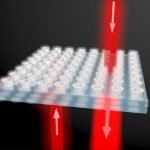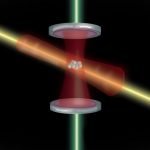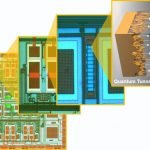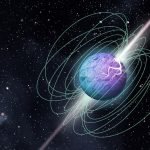Scientists find new way to break reciprocity law
The breakthrough makes a significant step forward in photonics and microwave technology by eliminating the need for bulky magnets.
An international research team lead by...
Ultracold atoms reveal a new type of quantum magnetic behavior
The findings could help design “spintronic” devices and novel magnetic materials.
A new study illuminates surprising choreography among spinning atoms.
In a paper appearing today in...
New atomic clock keeps time even more precisely
The design, which uses entangled atoms, could help scientists detect dark matter and study gravity's effect on time.
Atomic clocks are the most precise timekeepers...
New technique could sift out the universe’s first gravitational waves
In the moments immediately following the Big Bang, the very first gravitational waves rang out.
The product of quantum fluctuations in the new soup of...
Quantum tunneling pushes the limits of self-powered sensors
Using quantum tunneling, scientists have developed self-powered sensors that can run for more than a year.
Shantanu Chakrabartty's laboratory has been working to create sensors...
Magnetars could be behind some fast radio bursts, shows study
Magnetars—a type of neutron star believed to have an extremely powerful magnetic field—could be the source of some fast radio bursts, new research suggests.
Though...
Scientists synthesize ‘bright’ quantum bits
With their ability to harness the strange powers of quantum mechanics, qubits are the basis for potentially world-changing technologies—like powerful new types of computers...
Scientists turn IBM computer into a quantum material
In a groundbreaking study, a group of University of Chicago scientists announced they were able to turn IBM’s largest quantum computer into a quantum...
Galaxies have gotten hotter as they’ve gotten older
Who says you can't get hotter with age?
Researchers from Johns Hopkins University and other institutions have found that, on average, the temperature of galaxy...
Astronomers detect ultrabright radio flashes in our own galaxy for the first time
Fast radio bursts are extremely bright flashes of energy that last for a fraction of a second, during which they can blast out more...











